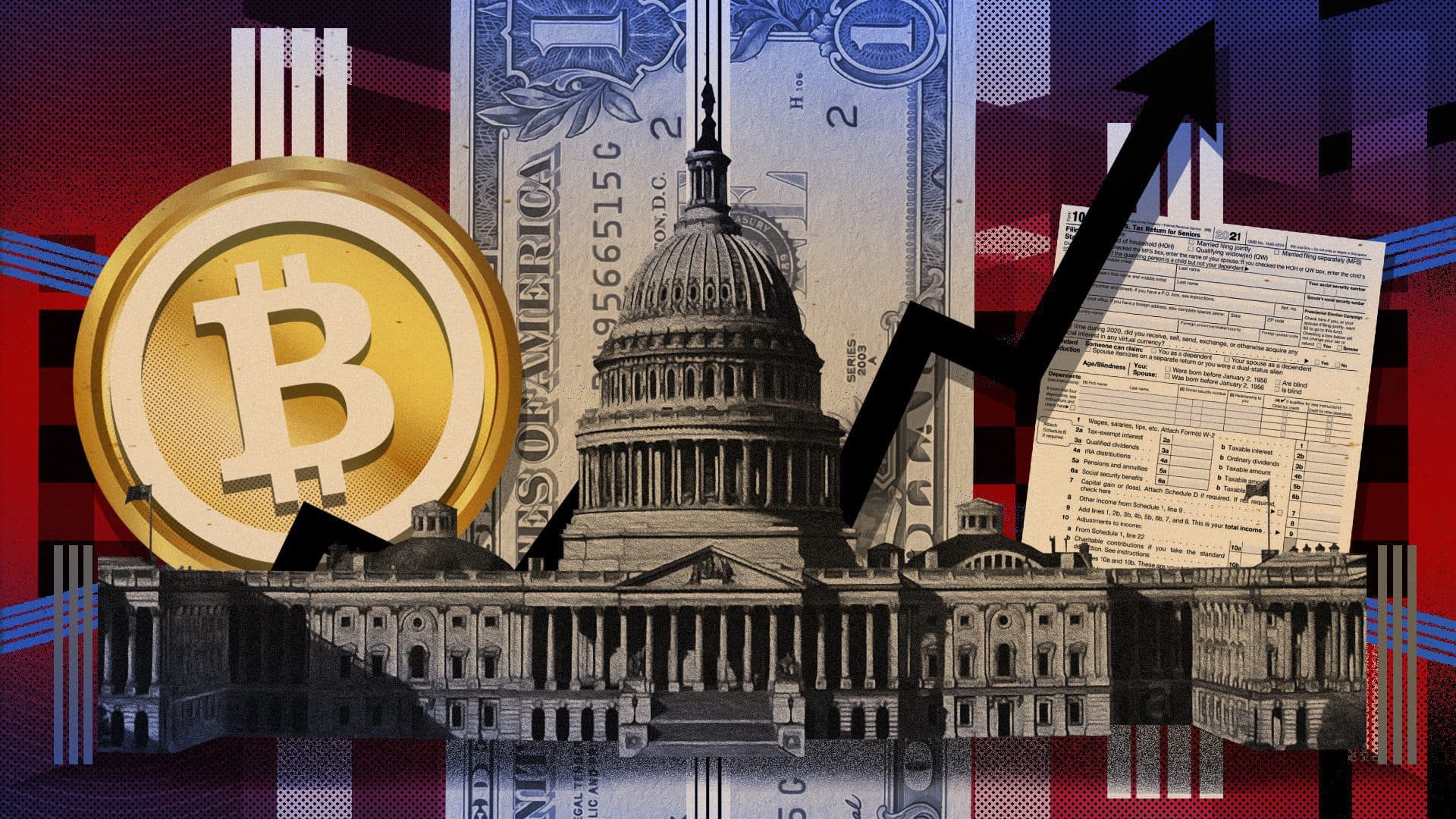IRS Updates Crypto Question for 2022 Tax Return to Include Gifts
Since the IRS first asked about cryptocurrency holdings in 2019, the tax agency has been gradually expanding the scope of its digital asset inquiries

Blockworks exclusive art by BY AXEL RANGEL
- IRS once again expands its inquiries into how taxpayers are interacting with cryptocurrencies
- In the newly released draft of the 2022 individual income tax return, the IRS clarified that “receiving” cryptocurrency includes digital assets earned through “rewards, awards or compensation”
The IRS has once again changed its annual questions on cryptocurrency holdings and associated gains, marking another year of increasingly, if incrementally, detailed probes into the digital asset dealings of taxpayers.
In the newly released draft of the 2022 individual income tax return, Form 1040, the IRS has clarified that “receiving” cryptocurrency includes digital assets earned through “rewards, awards or compensation.” The agency also wants to know if taxpayers sent or received cryptoassets as gifts.
“Even though sending and receiving gifts aren’t taxable, it looks like you will have to check ‘yes’ to the question,” tweeted Shehan Chandrasekera, head of tax at crypto accounting firm Coin Tracker.
The IRS first asked about crypto holdings in 2019 on the Schedule 1 form, which is not required of all taxpayers. In 2020, the agency asked about crypto holdings for the first time on Form 1040, a requisite for all taxpayers.
In 2020, the IRS wanted to know if taxpayers had held crypto or sent any holdings to different wallets, which are not inherently taxable events. In 2021, the IRS went a step further and asked if taxpayers had “received, sold, exchanged or otherwise disposed of any financial interest in any virtual currency.”
“They’ve reworded the question several times over the years since its introduction,” Kell Canty, CEO of Ledgible, said. “One of the intentions, I think, is to inform people so that they know exactly what their obligations are.”
The broad nature of the question potentially poses issues for the uninformed, according to Canty.
“By including more of those categories in there, if there ever is a situation where the taxpayer is involved in some kind of audit situation, and any of those transaction types are not reported, it becomes a very easy audit situation for the IRS,” he said.
Especially considering the growing number of tax filers using TurboTax or otherwise preparing their annual filings solo, requiring them to answer “yes” or “no” for a variety of often-complex digital asset trading scenarios may lead to a host of unintended consequences.
“If you check ‘no,’ and the IRS finds out that there was some trading or another activity, it’s an open and shut case,” Canty said.
Get the news in your inbox. Explore Blockworks newsletters:
- The Breakdown: Decoding crypto and the markets. Daily.
- 0xResearch: Alpha in your inbox. Think like an analyst.






